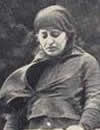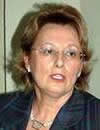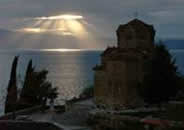Vigorous debate in Turkey - the 2nd women's revolution
Dear friends of ESI,
Here is a short update on ESI's work on Turkey and in the Balkans.
Sex and Power in Turkey – Reactions and Material
 |
 |
 |
 |
 |
|
Mustafa Akyol |
Selen Lermioğlu Yılmaz |
Soli Ozel |
Sahin Alpay |
Katharina Knaus |
Following the publication of the most recent ESI report on Islam, Feminism and the Maturing of Turkish Democracy on 2 June we could notice an unprecedented interest. In one month we had some 60,000 visitors on our website, a record to date.
Within days the report was also discussed in numerous Internet fora and media. The vigorous debate is likely to continue now that the report is also available in Turkish: İkinci Kadın Devrimi - Feminizm, İslam ve Türkiye Demokrasisinin Olgunlaşması. In a few days you can find it our our website in German as well (Geschlecht und Macht in der Türkei).
Turkish Daily News put the ESI Sex and Power report on its front page as the main news on 18 June: "Gender equality given carrot and stick in ESI report" (18 June 2007). Veteran Turkish commentator Sahin Alpay writes in Today's Zaman on 18 June:
Foreign researchers and observers are sometimes more successful than local ones in diagnosing Turkey's realities in an objective and sound manner. Perhaps one of the best examples of this was the research report titled "Islamic Calvinists: Change and Conservatism in Central Anatolia" published by the European Stability Initiative (ESI) … ESI recently published an equally significant report, titled "Sex and Power in Turkey: Feminism, Islam and the Maturing of Turkish Democracy."
Turkish commentator Mustafa Akyol writes on 14 June under the title "Sex Matters – Towards a post-patriarchal Turkey":
Two years have passed since the Islamic Calvinists report and now ESI is back with an even more thought-provoking study: "Sex And Power In Turkey: Feminism, Islam and The Maturing of Turkish Democracy." I think it is a must-read for anyone who wants to understand social change in Turkey and how it affects its women.
On 16 June Akyol also describes one emotional reaction:
Last weekend I was sitting at one the busiest Starbucks Coffee shops in Istanbul and reading the recent report by the European Stability Initiative (ESI) titled, "Sex And Power In Turkey: Feminism, Islam and The Maturing of Turkish Democracy." Suddenly someone said "Hi!" to me, and I realized that she was the perfect person to do so while reading a study on Turkish feminism. As a young, elegant and articulate Turkish woman, she runs a successful business and lives a perfectly Western life. But at the same time she believes that the U.S. and the EU are cooking up a conspiracy against Turkey, and the country is heading fast toward "shariah rule" because of those evil powers and their internal ally, the incumbent AKP.
She is one of those types who would rather see tanks in the streets than a first lady with a headscarf. When I told her that I was reading a report which shows that Turkey is making great progress in women's rights and the AKP government is helping that, she was first surprised, then defiant, and finally counter-attacking. "Who is financing that report," she asked, "it must be the EU who spreads these lies."
Soli Ozel's writes in Sabah in Turkish:
So when one asks what women gained with the the Republic the answer isn't all that rosy. ESI offers striking reminders with its report titled Sex and Power. Turkey is 105th out of 115 countries… In terms of sexual crimes, the penal codes of the Turkish Republic were a disaster in their approach to women. Both laws and practices were tolerant of honour crimes… The second important revolution relating to these issues was experienced since 2000 with the EU harmonization laws.
In addition to our report, the current issue of Turkish Policy Quarterly on Women in Turkey, edited by ESI senior analyst Nigar Goksel, is now complete and available on our website. There are three additional articles:
Selen Lermioğlu Yılmaz, KA-DER Projects Committee Coordinator, argues that "it is quite obvious that if quotas are not implemented, it would take approximately five hundred years to reach parity, when we take into account the 3,71 percent increase within 42 years. Maybe the political parties have the patience to wait this long; but it is obvious that women do not!"
Nimet Çubukçu, Turkish State Minister Responsible for Women and Family Affairs in Turkey, writes that "Women in Turkey are pleased to know that women's rights and gender equality is a very important part of the acquis communautaire and that any country that wants to become a member of the EU has to adapt the principles of the acquis."
And Katharina Knaus, analyst and researcher based in Istanbul, looks at the Turkish women's movement and notes that it is "as old as the women's movements in other Mediterranean or European countries such as Greece, Spain or Italy, where some women started to lobby for their rights about the same time."
A Century of Feminism in Turkey – Picture Story
 |
 |
 |
 |
|
Disillusioned revolutionary |
Republican Rebel |
Given the great interest in the topic of our last report we have now put together more background material under the title: A Century of Feminism in Turkey.
In this ESI Picture Story – which will hopefully lead our readers further to the substantive scholarship that exists in Turkey on this issue - we introduce some of the key personalities in a surprising story that challenges myths about Turkey. From the time of the Ottoman family law based on the Sharia to disappointed female revolutionaries and rebel women activists against the one-party state to religious, radical and Kemalist feminists of today, this picture story provides background to our report. The same is true for the 15 key facts about women in Turkey on our website.
Novi Sad – Tirana – Bulgaria – Ohrid
 |
 |
 |
|
Tirana |
Bulgaria |
Ohrid |
Meanwhile ESI analysts are active across the Balkans doing field research and presenting it.
In Tirana ESI together with one of Albania's leading think tanks, Agenda, undertook an opinion poll on the eve of Albania's presidential elections. In Vojvodina Eggert Hardten and Gerald Knaus presented ESI's research methodology at a three day capacity building seminar to a group of young Serb researchers. In Sofia Kristof Bender interviewed former Bulgarian prime minister Ivan Kostov as part of ESI research into the Europeanisation of Bulgaria. In Pristina Verena Knaus researched the failures of Kosovo Development Planning. Last week in Washington DC Gerald spoke about Kosovo and the future of the Balkans at a panel with Jim o'Brien on the occasion of the annual GMF think-tank forum. Today, Friday, Gerald speaks about the European future of the Balkans at a panel with the foreign ministers of Romania and Bulgaria, Wolfgang Petrisch and Deputy US Assistant Secretary of State Rosemary DiCarlo at a NATO conference in Ohrid.
We look forward to share with you our new ESI research on Kosovo, Montenegro, Bulgaria, Central Bosnia and Novi Sad soon.
Best regards,
![]()
Gerald Knaus

Gerald Knaus
- ESI Report - Sex and Power in Turkey (English)
- ESI Rapor - Ikinci Kadin Devrimi - Feminizm, İslam ve Türkiye Demokrasisinin Olgunlaşması (Türkçe)
- ESI Picture Story - A Century of Feminism in Turkey
- ESI Picture Story - 15 Key facts about women in Turkey
- Media Reactions - Falter, Katharina Knaus, "Türkische Mythen" (20 June 2007)
- Media Reactions - Dagens Nyheter, Henrik Berggren, "Gnosjö-islam" (21 June 2007)
- Agenda/ESI - Opinion poll on the eve of presidential elections in Albania (June 2007)
